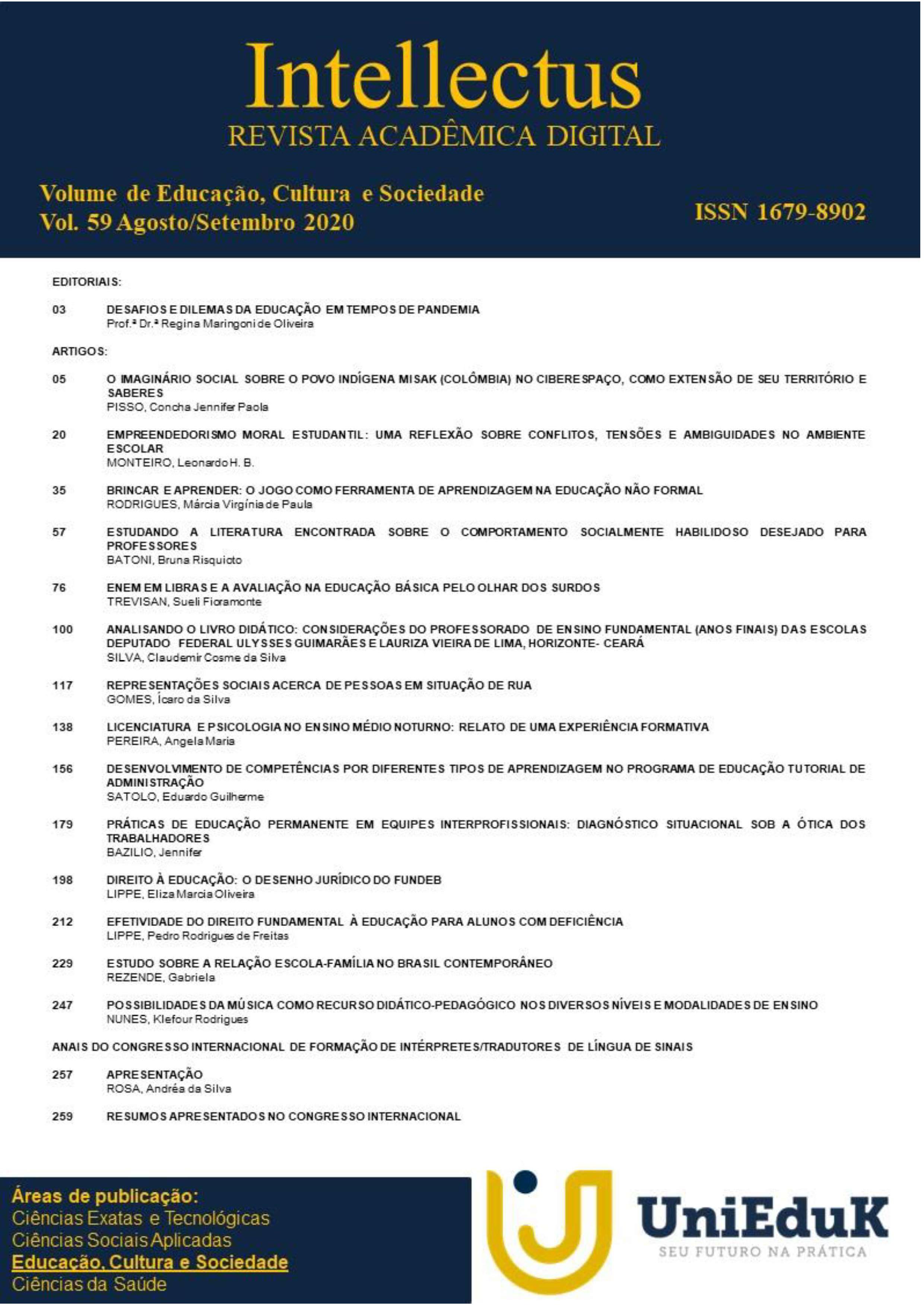Play And Learn
Game As A Learning Tool In Non-Formal Education
Keywords:
Learning, Games and Play, No Formal EducationAbstract
Due to the importance of playful activities, the interest of the researchers grew, from a psychopedagogical perspective, in researching this topic in the field of non-formal education, a space rich in possibilities of action, in order to assist the development of executive functions in children who have cognitive difficulties. It was questioned whether games and play would be an appropriate resource to minimize learning difficulties. The study aims to understand how playfulness can interfere and enhance the teaching and learning process as a form of group psychopedagogical intervention, with the purpose of exercising the child's skills, self-esteem, imagination and social integration, as well as the development of language, thinking and concentration. Held in a Civil Society Organization (CSO), eight children with learning difficulties participated. With the group, recreational activities were developed, divided into four categories: interaction games, individual games, toys and games and recreational activities of attention and concentration. The result showed the importance of educator interventions through play, even though it is a complex task, which requires time and commitment, it contributes to the optimization of the child's executive functions.



